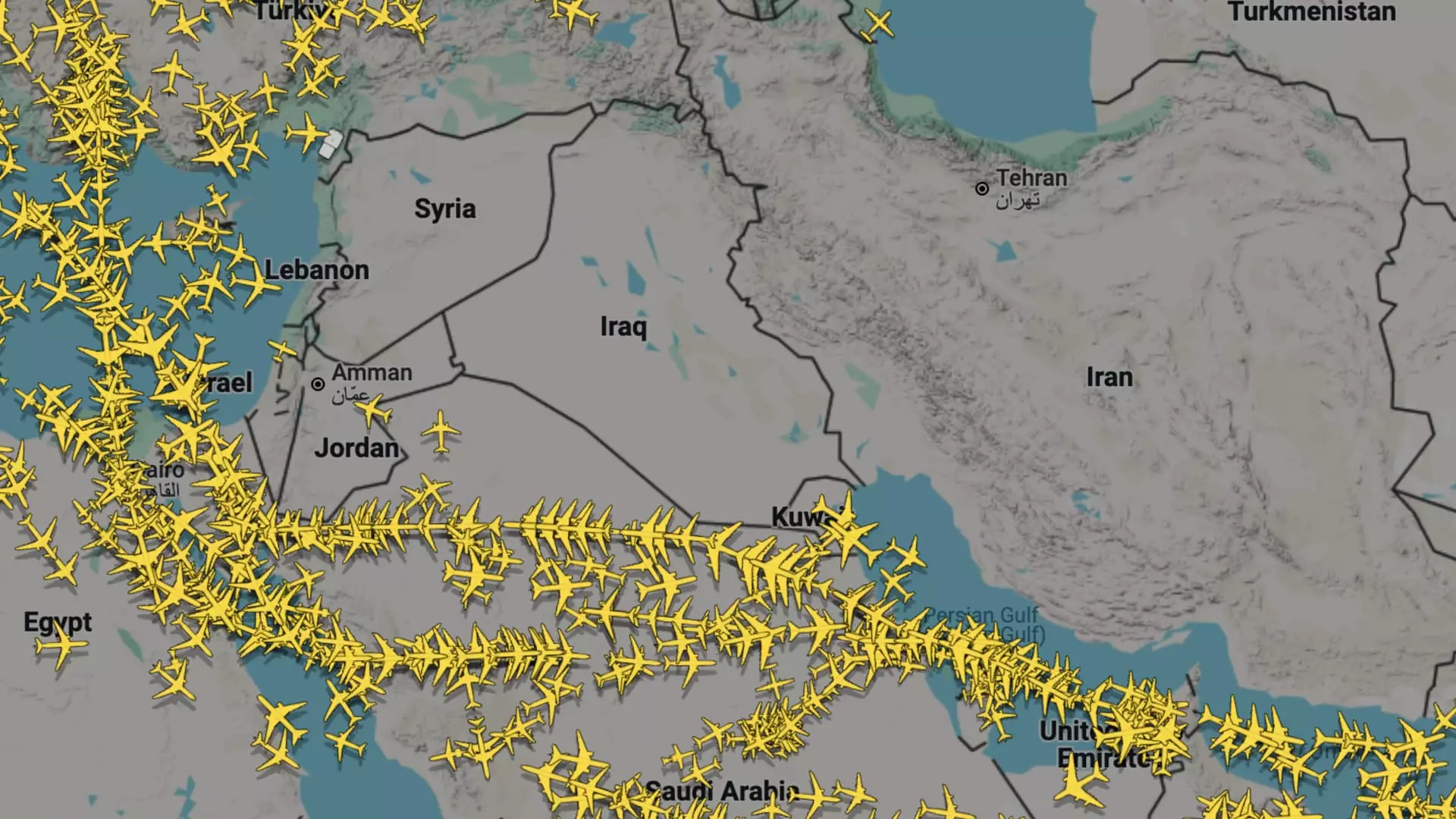As tensions surge in the Middle East, the aviation industry finds itself in a turmoil that affects not just geopolitics but the very fabric of travel itself. A recent wave of airline cancellations and route alterations has turned international travel to Israel into a logistical nightmare. With the backdrop of Israel’s missile strike on Iran triggering retaliatory drone launches, major airlines are making the gut-wrenching decision to ground flights, abandoning their commitments to travelers and altering the patterns of global connectivity. This disturbing trend raises questions about the implications of military engagements on civilian life, reminiscent of an era where peace seemed a distant dream.
Corporate Disarray Amid Security Concerns
The actions taken by airlines like Delta, United, and El Al illustrate a grim reality: that the balance between safety and business is precarious at best. Travelers who had planned trips to the bustling streets of Tel Aviv now find themselves stranded, rewriting their itineraries while airlines recalculate risks. This is not merely a corporate decision; it’s a reflection of a broader societal panic that pervades air travel when regional stability collapses. While measures to ensure safety should be applauded, the current scale of cancellations and advisories indicates a systemic failure—one that places profit margins over the basic human right to safe, unimpeded travel.
The Ripple Effect of Military Escalation
It’s essential to recognize the broader ramifications of these military conflicts on global air travel. The shift in airspace protocols is not just a benign alteration; it signifies a deeply entrenched problem that has far-reaching consequences. Turkish Airlines and Wizz Air’s abrupt suspension of flights echoes a damning reality: airlines are forced into evasive maneuvers that extend costs and complications. At a time when travel should be a celebration of connection, it feels more like a barrier—a stark reminder of how ephemeral peace can be in the face of aggression, and how quickly businesses can pivot from service to survival mode.
Personal Damnation for the Affected Travelers
For the casual traveler or business professional whose itinerary has been thrown into disarray, the aviation industry’s response feels far from adequate. Offering travel vouchers and waiving change fees does little to mitigate the emotional anxiety and financial strain forced upon individuals. Accommodations abroad, uncertain timelines, and endless rebookings are now the new normal for those caught in this cycle of chaos. This crisis starkly illustrates the vulnerability of personal plans to the hasty decisions made far away in a military bunker.
Given this reality, the question arises: what is the ethical obligation of airlines during such times? Should they prioritize the safety of passengers over the convenience of profits, or should the economic implications of a full-scale cancellation be weighed? The answer appears murky in an industry that heavily leans on consumer trust as its foundation.
In these critical moments, the balance between global responsibility and corporate accountability must be scrutinized. Air travel should bring people together, not serve as a further dividing line in times of conflict. The airspace above is meant for travel, not war, yet seems increasingly fraught with the latter’s implications.

